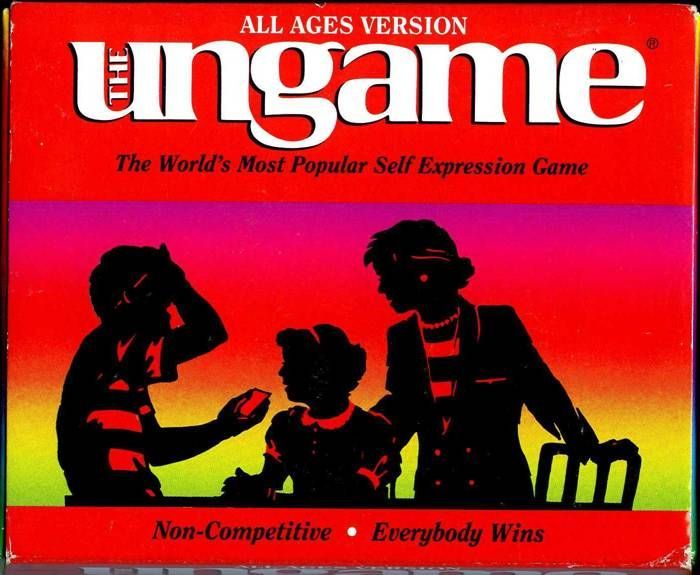The Ungame (1973) Board Game
The Ungame is a non-competitive board game that was first released in in 1973. It was designed by Rhea Zakich with the intention of promoting communication and self-expression among players. The game is known for its unique approach of focusing on open-ended questions and discussions rather than traditional gameplay mechanics.
Game Components of The Ungame
How To Setup The Ungame
To set up The Ungame, lay out the board and choose either the lighthearted or serious question card deck. Shuffle the chosen deck and place it face-down on the designated space on the board. Each player selects a marker and places it at the starting point on the board. The game is ready to begin once all players have their markers and the question deck is in place.
Gameplay Mechanics and Game Objective
Player Experience
The Ungame provides a unique and engaging way for players to share thoughts, feelings, and ideas. The game’s design encourages active listening and meaningful interactions, making it an excellent tool for family, group, or individual therapy. Players navigate through a series of personal questions and reflections, fostering a deeper understanding of each other.
Pros
Cons
Personal Thoughts on The Ungame
The Ungame is an ideal game for anyone looking to enhance communication and emotional connection within a group. It is particularly beneficial for families seeking to bond on a deeper level, couples aiming to strengthen their relationship, and therapy groups focusing on emotional expression. The game’s ability to break down barriers and encourage open dialogue makes it a valuable addition to any setting where meaningful interactions are desired.
We are supported by our audience. When you purchase through links on our site, we may earn an affiliate commission, at no extra cost for you. Learn more.

